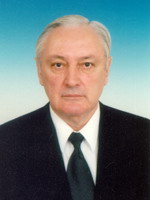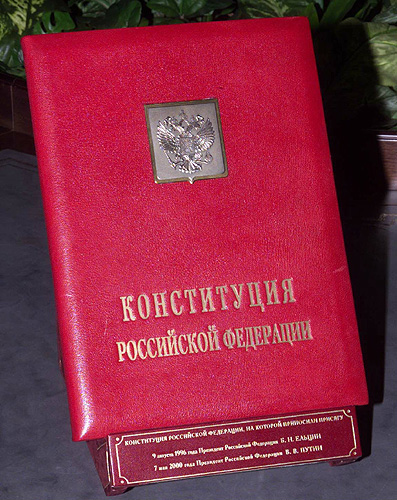|
Accounts Chamber Of Russia
Accounts Chamber of the Russian Federation () is the parliamentary body of financial control in the Russian Federation. History The prototype of the Accounts Chamber of the Russian Federation was the Chamber-collegium established by Peter I in 1718 for the management of state taxes and some sectors of the state economy. Prior to that time, the treasury of Russian tsars was a mess. The founder of the Court of Auditors was Petr Lukich Aksenov. In 1719, he introduced to the Russian government the written balance of income and expenditure of money in the state treasury, and gave the Emperor a weekly report of capital flows. Moreover, Petr Aksenov defined the form of accounting for the Chambers-collegium and teach it local clerk and officials from all Russia. In 1725, the Senate determined Peter Aksenov kamerirom, and in 1731 Secretary. The office of State Comptroller existed in the Russian Empire from 1811 to 1918. It was then replaced by People's Commissariat of same name and in ... [...More Info...] [...Related Items...] OR: [Wikipedia] [Google] [Baidu] |
Moscow
Moscow is the Capital city, capital and List of cities and towns in Russia by population, largest city of Russia, standing on the Moskva (river), Moskva River in Central Russia. It has a population estimated at over 13 million residents within the city limits, over 19.1 million residents in the urban area, and over 21.5 million residents in Moscow metropolitan area, its metropolitan area. The city covers an area of , while the urban area covers , and the metropolitan area covers over . Moscow is among the world's List of largest cities, largest cities, being the List of European cities by population within city limits, most populous city entirely in Europe, the largest List of urban areas in Europe, urban and List of metropolitan areas in Europe, metropolitan area in Europe, and the largest city by land area on the European continent. First documented in 1147, Moscow became the capital of the Grand Principality of Moscow, which led the unification of the Russian lan ... [...More Info...] [...Related Items...] OR: [Wikipedia] [Google] [Baidu] |
Khachim Karmokov
Khachim Mukhamedovich Karmokov (; 2 May 1941 – 30 December 2023) was a Russian politician who served as a senator from Kabardino-Balkaria from 2001 to 2009. Life and career Khachim Karmokov was born on 2 May 1941 in Baksansky District, Kabardino-Balkarian Autonomous Soviet Socialist Republic. He graduated from the Kabardino-Balkarian State University. In 1990, Karmokov was appointed Deputy Chairman of the Council of Ministers of the Kabardino-Balkarian ASSR. From 1991 to 1993, he served as Deputy Chairman of the Supreme Soviet of the Kabardino-Balkarian Autonomous Soviet Socialist Republic. In 2000, he was appointed Chief Advisor to the Chairman of the Accounts Chamber of Russia. From 2001 to 2009, he represented Kabardino-Balkaria in the Federation Council. In 2013, he was appointed the State Counselor of Kabardino-Balkaria Kabardino-Balkaria (), officially the Kabardino-Balkarian Republic, is a republic of Russia located in the North Caucasus. As of the 2021 Census ... [...More Info...] [...Related Items...] OR: [Wikipedia] [Google] [Baidu] |
Politics Of Russia
The politics of Russia take place in the framework of the federation, federal semi-presidential republic, semi-presidential republic of Russia. According to the Constitution of Russia, the President of Russia is head of state, and of a multi-party system with executive power exercised by the government, headed by the Prime Minister of Russia, Prime Minister, who is appointed by the President with the parliament's approval. Legislative power is vested in the Bicameralism, two houses of the Federal Assembly of the Russian Federation, while the President and the government issue numerous legally binding by-laws. Since the collapse of the Soviet Union at the end of 1991, Russia has seen serious challenges in its efforts to forge a political system to follow nearly seventy-five years of Soviet governance. For instance, leading figures in the legislative and executive branches have put forth opposing views of Russia's political direction and the governmental instruments that should ... [...More Info...] [...Related Items...] OR: [Wikipedia] [Google] [Baidu] |
Federal Budget Of Russia
The federal budget of Russia () is the leading element of the budget system of Russia. It is a major state financial plan for the fiscal year, which has the force of law after its approval by the Russian parliament and signed into law by the President of Russia. The federal budget is the primary means of redistribution of national income and gross domestic product through it mobilized the financial resources necessary to regulate the country's economic development, social policy and the strengthening of the national defense. The share of federal budget accounts for a significant portion of the distribution process, which is the allocation of funds between sectors of the economy, manufacturing and industrial areas, regions of the country. The right of the Russian Federation for an independent federal budget is enshrined by Article 71 of the Russian Constitution and the Budget Code of Russia that regulates the details of its formation and execution. Process No later than Octob ... [...More Info...] [...Related Items...] OR: [Wikipedia] [Google] [Baidu] |
Boris Kovalchuk (2024-05-13)
Boris Yuryevich Kovalchuk (; born 1 December 1977) is a Russian official who has served as Chairman of the Accounts Chamber of Russia since 2024. He is a son of Yury Kovalchuk. Since April 20, 2006, he has led the Department of the Russian Government's Staff for implementation of the National Priority Projects. Biography Kovalchuk was born on December 1, 1977, in Leningrad, which was then part of the Russian SFSR. His father is Yury Kovalchuk, who has been known to be a longtime associate of Vladimir Putin. In 1999 he graduated from the Faculty of Law of St. Petersburg State University. After graduating he worked until 2006 as a legal consultant at the Federal State Unitary Enterprise Central Research Institute "Granit", which supplies telecommunications equipments while also from 2003 to 2006 being a member of the audit commission of the Rossiya Bank which his father owns. In addition, durig this time, he was executive director of the non-profit "League of Honorary Consuls" ... [...More Info...] [...Related Items...] OR: [Wikipedia] [Google] [Baidu] |
Alexei Kudrin
Alexei Leonidovich Kudrin ( rus, Алексе́й Леони́дович Ку́дрин, p=ɐlʲɪkˈsʲej lʲɪɐˈnʲidəvʲɪtɕ ˈkudrʲɪn; born 12 October 1960) is a Russian liberal politician and economist. Previously he served as the Chairman of the Accounts Chamber from 2018 to 2022 and as Minister of Finance from 2000 to 2011. Since 9 December 2022, he is a corporate development advisor at Yandex. After graduating with degrees in finance and economics, Kudrin worked in the administration of Saint Petersburg's liberal Mayor Anatoly Sobchak. In 1996, he started working in the Presidential Administration of Boris Yeltsin. He was appointed as Finance Minister on 28 May 2000 and held the post for 11 years, making him the longest-serving Finance Minister in post-Soviet Russia up to that point. In addition, he was Deputy Prime Minister from 2000 to 2004 and again beginning in 2007. As Finance Minister, Kudrin was widely credited with prudent fiscal management, commitment to ... [...More Info...] [...Related Items...] OR: [Wikipedia] [Google] [Baidu] |
Kudrin (cropped)
Kudrin () is a Russian masculine surname, its feminine counterpart is Kudrina. Notable people with the surname include: *Alexei Kudrin Alexei Leonidovich Kudrin ( rus, Алексе́й Леони́дович Ку́дрин, p=ɐlʲɪkˈsʲej lʲɪɐˈnʲidəvʲɪtɕ ˈkudrʲɪn; born 12 October 1960) is a Russian liberal politician and economist. Previously he served as the C ... (born 1960), Russian politician * Olga Kudrina (c. 1890–1944), shamaness of Inner Mongolia * Pavel Kudrin (born 1983), Russian football player * Sergey Kudrin (born 1959), American chess grandmaster Russian-language surnames {{surname ... [...More Info...] [...Related Items...] OR: [Wikipedia] [Google] [Baidu] |
Tatyana Golikova
Tatiana Alexeyevna Golikova (Russian: Татьяна Алексеевна Голикова; born 9 February 1966) is a Russian politician and economist who serves as the Deputy Prime Minister of Russia for Social Policy, Labour, Health Care, and Pension Provision since 2018. From 2007 to 2012, she served as the Minister of Health and Social Development and Chairwoman of the Account Chamber of Russia from 2013 to 2018. She has the federal state civilian service rank of 1st class Active State Councillor of the Russian Federation. Early life and education Golikova was born on 9 February 1966 in Mytishchi, Russian SFSR. She graduated from the Plekhanov Institute of the National Economy with a specialization in labour economics in 1987. Career Golikova was an economist in the State Budget Department at the Finance Ministry from 1990 to 1992. She moved on to hold the post of Chief Economist in the State Budget Department at the Finance Ministry from 1992 to 1995 and was then ... [...More Info...] [...Related Items...] OR: [Wikipedia] [Google] [Baidu] |
Tatyana Golikova, 2016
Tatiana (or Tatianna, also romanized as Tatyana, Tatjana, Tatijana, etc.) is a female name of Sabine-Roman origin that became widespread in Eastern Europe. Origin Tatiana is a feminine, diminutive derivative of the Sabine—and later Latin—name Tatius. King Titus Tatius was the name of a legendary ruler of the Sabines, an Italic tribe living near Rome around the 8th century BC. After the Romans absorbed the Sabines, the name Tatius remained in use in the Roman world, into the first centuries of Christianity, as well as the masculine diminutive Tatianus and its feminine counterpart, Tatiana. While the name later disappeared from Western Europe including Italy, it remained prevalent in the Hellenic world of the Eastern Roman Empire, and later spread to the Byzantine-influenced Orthodox world, including Russia. In that context, it originally honoured the church Saint Tatiana, who was tortured and martyred in the persecutions of the Roman Emperor Alexander Severus, c. 230 ... [...More Info...] [...Related Items...] OR: [Wikipedia] [Google] [Baidu] |
Sergei Stepashin
Sergei Vadimovich Stepashin (; born 2 March 1952) is a Russian politician who briefly served as Prime Minister of Russia in 1999. Prior to this he had been appointed as federal security minister for counterintelligence by President Boris Yeltsin in 1994, a position from which he resigned in 1995 as a consequence of the Budyonnovsk hospital hostage crisis. Subsequent to his tenure as Prime Minister he served as Chairman of the Accounts Chamber of Russia from 2000 until 2013. Early life and education Stepashin was born in Port-Arthur, Kvantun Oblast, USSR (now Lüshunkou, China) on 2 March 1952. He graduated from the Higher Political School of the USSR Ministry of the Interior (1973), in 1981 from the Lenin Military-Political Academy, and in 2002 from the Finance Academy. He is a Doctor of Law, Professor, and has a rank of the State Advisor on Justice of the Russian Federation. His military rank is colonel general. Career Stepashin served as the Head of the FSK (the predece ... [...More Info...] [...Related Items...] OR: [Wikipedia] [Google] [Baidu] |
Parliament
In modern politics and history, a parliament is a legislative body of government. Generally, a modern parliament has three functions: Representation (politics), representing the Election#Suffrage, electorate, making laws, and overseeing the government via hearings and inquiries. The term is similar to the idea of a senate, synod or congress and is commonly used in countries that are current or former monarchies. Some contexts restrict the use of the word ''parliament'' to parliamentary systems, although it is also used to describe the legislature in some presidential systems (e.g., the Parliament of Ghana), even where it is not in the Legal name, official name. Historically, parliaments included various kinds of deliberative, consultative, and judicial assemblies. What is considered to be the first modern parliament, was the Cortes of León, held in the Kingdom of León in 1188. According to the UNESCO, the Decreta of Leon of 1188 is the oldest documentary manifestation ... [...More Info...] [...Related Items...] OR: [Wikipedia] [Google] [Baidu] |






